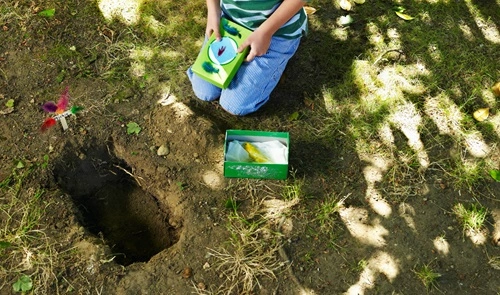No, in most states within the United States, it is not illegal to bury your pet in your backyard. However, the legality varies depending on state, county, and municipal regulations. Many local jurisdictions allow backyard pet burials, but they often impose specific guidelines to ensure health and environmental safety.
State and Local Regulations on Backyard Pet Burials
1. State-Level Guidelines
- Some states explicitly permit backyard pet burials, while others leave the decision to local governments. States like California, Texas, and Florida generally allow backyard burials, provided the property is privately owned.
- A few states may prohibit pet burials in urban or densely populated areas due to public health concerns.
2. Municipal Ordinances
- Local governments may impose stricter regulations, including bans on pet burials in certain zones, depth requirements, or restrictions on burial sites near water sources.
- For instance, some cities may require owners to use pet cremation services instead of allowing burials.
3. Environmental Considerations
- Regulations often focus on protecting soil, groundwater, and public health. For example, burial sites must usually be located away from wells, streams, or other water sources to prevent contamination.
General Guidelines for Backyard Pet Burials
1. Depth of Burial
- Most jurisdictions require that pets be buried at least 3 to 4 feet deep to prevent other animals from disturbing the site.
2. Use of Biodegradable Materials
- Many laws encourage the use of biodegradable containers, such as wooden or cardboard boxes, to minimize environmental impact.
3. Property Ownership
- Backyard burials are typically permitted only on private property. If you rent or live in a community with homeowners’ associations (HOAs), you may need additional permissions.
4. Timeframe for Burial
- Pet owners are often required to bury their pets promptly to avoid health hazards related to decomposition.
Where Backyard Burials Are Restricted
1. Urban and Suburban Areas
- Heavily populated areas may prohibit backyard burials altogether to prevent odor, pest issues, and potential health risks.
2. Pets with Contagious Diseases
- Pets that have died from diseases such as rabies or other transmissible illnesses may be subject to special disposal regulations. Contact your local animal control or public health department for guidance.
3. Protected Land
- Burials on public or protected land, including parks and nature reserves, are generally illegal.
Alternatives to Backyard Pet Burial
1. Pet Cemeteries: Licensed pet cemeteries offer an alternative for those who cannot bury their pets at home. These cemeteries are regulated and provide a formal resting place.
2. Cremation Services: Pet cremation is another popular option, with many services offering ashes that can be kept in urns or scattered in meaningful locations.
3. Composting: In some areas, composting deceased pets under specific guidelines is an eco-friendly option.
Common Legal Concerns About Backyard Pet Burials
1. Liability Issues: If a buried pet contaminates groundwater or causes environmental harm, property owners could face legal consequences.
2. Future Property Sales: Burials may complicate property sales, particularly if new owners have concerns about pet remains on the property.
3. Disinterment Rules: If you move, local laws may restrict exhuming a pet’s remains. Many municipalities consider disinterment a regulated activity.
Related FAQs
Q1. Can I bury my pet in my backyard if I rent the property?
Ans: Backyard pet burials are typically not allowed for renters unless the landlord provides explicit permission.
Q2. How deep should I bury my pet?
Ans: Most areas require a burial depth of at least 3 to 4 feet to prevent animals from disturbing the grave and to protect against environmental risks.
Q3. Can I bury my pet near a water source?
Ans: No, most regulations prohibit burials within a certain distance (e.g., 100 feet) of wells, streams, or other water sources to prevent contamination.
Q4. Is it illegal to bury my pet in public parks?
Ans: Yes, burying pets on public land, including parks and nature reserves, is generally illegal and subject to fines or penalties.
Q5. Are there restrictions for burying pets with diseases?
Ans: Yes, pets that have died from contagious or zoonotic diseases may need to be disposed of according to public health guidelines, often requiring cremation.
Conclusion
While burying your pet in your backyard is legal in many parts of the United States, it is essential to comply with local and state regulations. Always check your municipality’s rules regarding burial depth, proximity to water sources, and property ownership requirements. By following the guidelines, you can honor your pet’s memory while ensuring the safety of your community and the environment.


